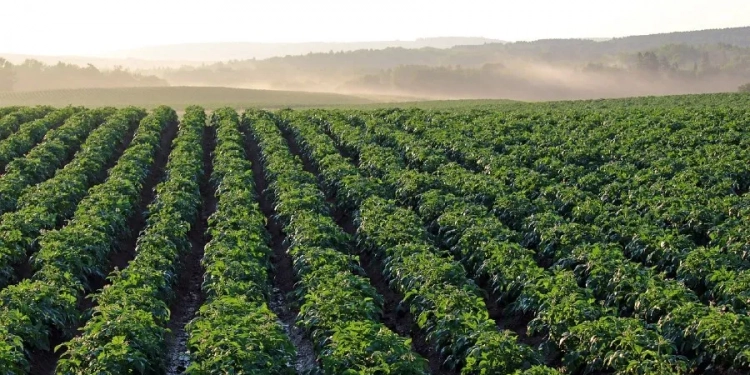Balancing Tradition with Modern Solutions to Address Global Challenges in Potato Production
The potato, a crop central to global food security, continues to play a pivotal role in feeding the world. As the fourth-largest food crop globally, following rice, wheat, and corn, the potato has demonstrated extraordinary adaptability across diverse climates and soil conditions. Yet, the industry faces mounting challenges, including climate change, resource scarcity, and evolving consumer demands. Addressing these issues requires innovative solutions that merge tradition with cutting-edge technology.
Transforming Potato Production with Technology
Modern technological advancements are redefining how potatoes are cultivated, stored, processed, and marketed. From drones and artificial intelligence (AI) to blockchain and genetic engineering, these tools are no longer futuristic concepts but essential components of a more sustainable and efficient potato value chain.
1. Precision Agriculture: Optimizing Yields and Resource Use
Through GPS, drones, and data analytics, precision agriculture enables farmers to monitor soil conditions, plant health, and resource use with unprecedented accuracy. This data-driven approach ensures optimal application of water, fertilizers, and pesticides, reducing waste and enhancing crop quality while minimizing environmental impact.
2. Smart Irrigation: Conserving Water
With smart irrigation systems, farmers can automate water application based on real-time soil and weather data. This technology conserves water, reduces labor, and promotes healthier plants, making it vital for regions facing water scarcity.
3. Automated Harvesting: Increasing Efficiency
AI-driven harvesters equipped with sensors distinguish potatoes from debris, ensuring a faster and more precise harvest. These machines reduce labor costs and minimize crop damage, improving overall profitability.
4. Advanced Storage Solutions: Extending Shelf Life
Climate-controlled storage facilities with automated systems prevent spoilage and waste by maintaining ideal conditions for potatoes. Monitoring technologies further alert farmers to potential issues, ensuring consistent supply year-round.
5. Optical Sorting: Enhancing Quality Control
Optical sorters use sensors and cameras to detect imperfections in potatoes, improving the quality of processed products like fries and chips. This technology ensures better output while reducing waste.
6. Genetic Engineering: Building Resilience
Biotechnology allows for the development of potato varieties resistant to diseases, pests, and environmental stressors. These innovations reduce input requirements, contributing to sustainable farming practices.
7. Blockchain Technology: Ensuring Traceability
Blockchain provides transparency in the supply chain, allowing consumers to verify the origin and quality of their potatoes. For producers, it enhances trust and facilitates efficient management during recalls or quality checks.
8. E-Commerce Platforms: Expanding Reach
Online marketplaces enable farmers and processors to connect directly with consumers, offering fresh and specialty potato products. This shift expands market access and diversifies sales channels.
9. AI and Market Analytics: Anticipating Consumer Trends
AI-powered tools analyze consumer behavior and market trends, enabling producers to adapt offerings and optimize supply chains. Insights into preferences for organic or low-carb options help businesses stay competitive.
10. Sustainable Packaging: Reducing Environmental Impact
Eco-friendly packaging materials such as biodegradable or compostable options are gaining traction, aligning the potato industry with global sustainability goals and reducing waste.
A Future Rooted in Innovation
The potato industry stands at a transformative juncture, where embracing technology is not just an opportunity but a necessity. These advancements promise greater productivity, reduced waste, and improved sustainability across the value chain. However, ensuring equitable access to technology, fostering collaboration, and prioritizing environmental stewardship are essential for long-term success.
As farmers, researchers, and industry leaders work together to navigate these changes, the potato remains a symbol of resilience and adaptability, charting a sustainable path for global agriculture.







